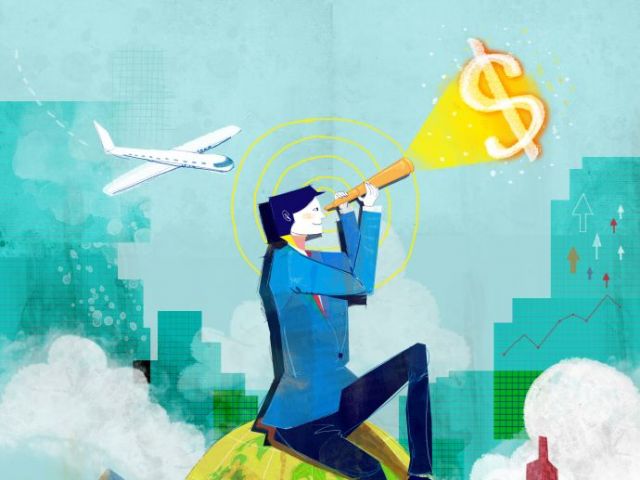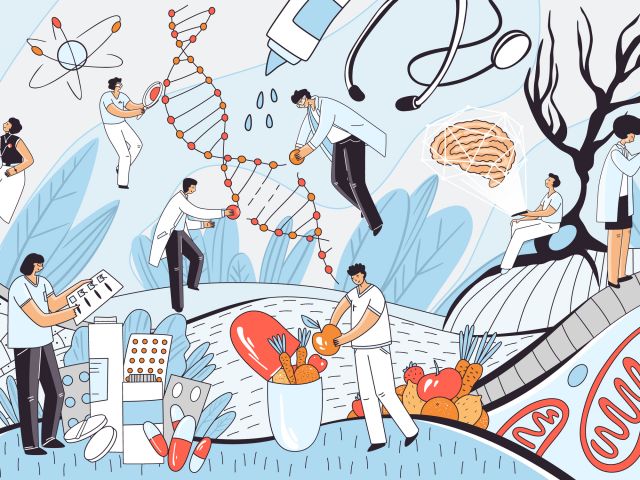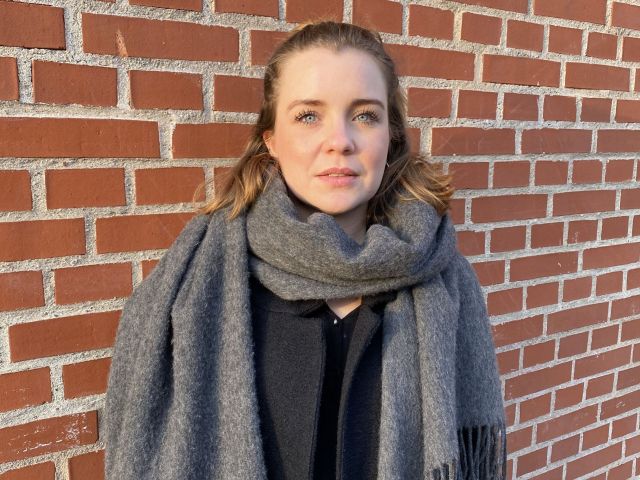The digital transformation is in motion – but who controls the direction?

If we don’t want the tech giants to create a dystopian digital reality, we must take control of them, say CBS researchers. What is their dream scenario?
When, in February, Facebook announced that it would ban all news written and published in Australia, it felt like a prophecy had come true. (See fact box)
Just the day before, I interviewed Professor MSO, Mikkel Flyverbom about the digital transformation we are experiencing, and especially one aspect kept reappearing during the interview: the power of the dominant tech giants.
“Facebook and Google’s activities, for example, are no longer limited to their own platforms. Now, they are part of our society. We see their platforms being used in public institutions, in police work and political campaigns. And we need to understand this if we want to control them,” says Mikkel Flyverbom, mentioning a few examples of how the tech giants’ approaches to technology penetrate their digital spheres and enter into society.
For example, at municipality level, projects are looking at how algorithms can improve the distribution of resources. Specifically, whether they can be used to predict which children will find themselves in trouble later in life and therefore need extra support, or which of the long-term unemployed could potentially suffer a decline and drift further away from the job market, he explains.
“The municipalities see the technologies as a means of saving money and obtaining more precise knowledge about their citizens. But using digital technologies and algorithms can have far-reaching consequences that can undermine the values and principles on which we have built the public sector,” he says and continues:
“If we do not understand how these tools work and reach conclusions, we may allow them to interfere in very sensitive and important decisions that undermine citizens’ rights.”
As Academic Director of the BiS Digital Transformation Platform at CBS, he works alongside Ioanna Constantiou, Professor MSO, and researchers from across various CBS departments, exploring the implications of digital and other technological developments for economic and societal transformation.
Therefore, I have asked Mikkel Flyverbom and Ioanna Constantiou to share their views on how the digital universe is currently changing, and where they see the potentials and especially the pitfalls.
“When we talk about transformation, there’s always a trigger. In this case, it’s technology. We have had technology-triggered change many times before in the past, but the digital transformation is different. It alters the way the world evolves, it changes how organizations compete in the market, and how we behave,” says Ioanna Constantiou, who has been working in the field for the past 23 years and gives an example:
“Digital technologies enable data collection of almost every business activity and human behavior. Digital platforms collect, aggregate and compute this data to shape digital markets that they control. Businesses and individuals transact based on prices determined by the platforms and rules set by the platforms, which decide who can join the new market and define what the participants can or cannot do.”
“If we don’t understand them – we cannot intervene”
The tech giants and their technologies already permeate all aspects of our everyday lives. When browsing through webpages, you see commercials tailored and targeted to suit your digital behavior. Netflix knows your taste in films, and Spotify also knows your preferences, which, in my case, means heavy metal.
Especially the commercial aspect of the tech giants is worrying, says Mikkel Flyverbom.
“We risk compromising industries that produce content, like the media, as the big platforms have changed the use of ads and undermined a lot of content producers’ business models, also because newspapers and others now depend on these platforms without thinking about the long-term consequences. If we simply continue like this and don’t understand what is happening, we will erode the pillars on which we have built our society. Like having a free press and public service,” he says and continues:
“Luckily, we are seeing states and institutions, such as the EU Commission, showing their mettle by demanding rules and regulations that focus on the needs of society and our democracy.”
I believe this transformation can have a positive outcome, and that’s what I teach
Ioanna Constantiou
The personalized recommendations that we receive on a daily basis when interacting with digital platforms have also changed our consumer behavior – especially during the pandemic, explains Ioanna Constantiou.
“Covid-19 has triggered and accelerated the necessity for online shopping, as you cannot visit shops in person. The digital platforms aim to maximize their profits by providing personalized recommendations based on our previous behaviors, and redefine our choices by defining the range of options we see. Not because they want to control us, but because they want to earn money,” she says.
Just like Mikkel Flyverbom, Ioanna Constantiou wants us to think about what values and ethics we prefer to base our behavior on, and she also wants to help businesses understand how they can reclaim the power taken by the digital platforms.
“If you look at the hotel industry, Trip Advisor has changed the landscape a lot. You could have a perfectly successful hotel, but suddenly it becomes unsuccessful because your hotel does not have high enough rankings on the platform. Platforms like Trip Advisor transform the local market competition among hotels, restaurants or other local businesses. We researchers can help the businesses by explaining the changes and proposing solutions to make the most of their participation in digital platforms,” she says and continues:
“And we must. It will have dramatic economic effects on society if local businesses are not successful.”
This is why regulations are needed. However, you cannot regulate the new digital businesses based on regulations used in the past, explains Ioanna Constantiou.
“If we don’t understand how digital platforms work, we cannot intervene. The digital platforms are not like traditional businesses, they are new types of businesses, which have created new markets. Therefore, you need regulations that cater for the specific conditions in the platform’s market,” she says.
A digital utopia
According to Mikkel Flyverbom, previous transformations have shown that we must intervene to stop them developing in a direction that is incompatible with society, our values and ethics.
“During modern industrialization, many factories were built, but we realized that it comes at a price. We don’t want small children making our clothes and footballs, and we don’t accept industries dumping their wastewater in the ocean. We want rules and responsibility. And who gives us those? Democratic institutions. They are the ones who set the rules and framework in accordance with our wishes,” he says and continues:
“We cannot expect companies to do that themselves, so we need democratic institutions to fight the battles and shape the development.”
When asked to describe his dream scenario, Mikkel Flyverbom is clear about what he hopes for and how to turn it into reality.
“I want technological and digital services that we can take control of and shape as we like. In other areas, we invest in solid systems and infrastructures that we can trust and count on. And in order to share digital transformations, as a business school, CBS plays a crucial role, as we understand the industry and how to run, organize and manage businesses. And we need that understanding if we want to create new digital solutions, but we also need to work closely together with technical partners to make that happen,” he says, adding:
“We must accept responsibility for creating the digital solutions that support our welfare society and protect our citizens, as commercial platforms do not deliver this.”
Ioanna Constantiou is hopeful about the future. She is noticing that new digital technologies are also being used to bring people together in new business ventures aimed at solving societal challenges.
“You have companies like EAT GRIM that sells ugly vegetable through its platform. It developed a digital platform with a social purpose, and I want to understand how they work, and help society and the economy to grow. I believe this transformation can have a positive outcome, and that’s what I teach,” she says and continues:
“I teach courses about the digital transformation, so students can combine the tools they learn and solve the problems of businesses and society. They become resourceful and adaptable. You become a resourceful leader if you can choose and combine the right tools from multiple disciplines to solve your business problems.”







































































































































Comments